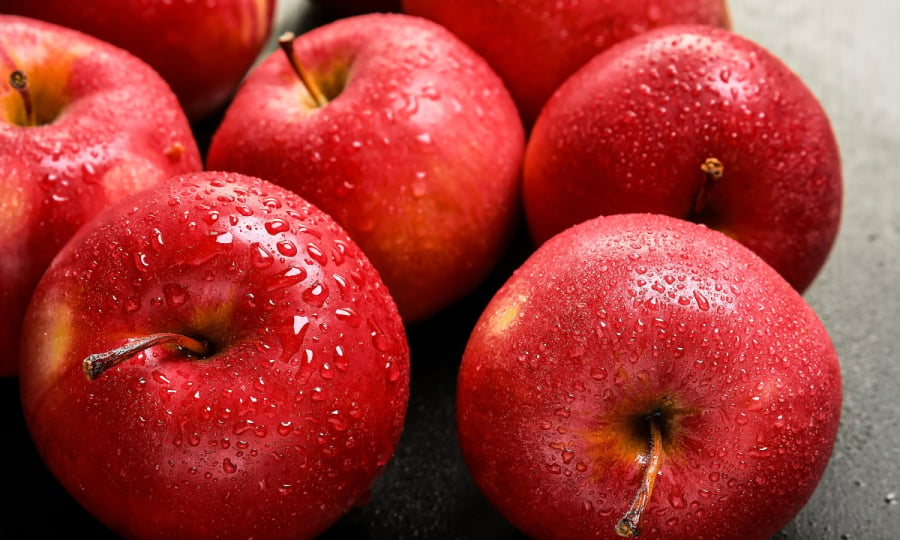People with diabetes should incorporate more fruits and vegetables into their diet as they are rich in vitamins, minerals, fiber, and antioxidants, while being less likely to cause blood sugar spikes. Specifically, fruits like apples can help manage blood sugar levels and reduce the risk of chronic diseases such as heart disease and cancer.
Nutrient-Dense Apples
Apples are a nutrient-rich food source, especially beneficial for those with diabetes. A medium-sized apple provides approximately 104 calories, 27g of carbohydrates, 9mg of vitamin C, as well as ample fiber and antioxidants, boosting immunity and reducing inflammation effectively. Most of the apple’s nutritional value lies in its skin, so be sure to wash and consume the apple with its skin intact to maximize its benefits.
For individuals with diabetes, managing fat, carbohydrate, and protein intake is crucial as these directly impact blood sugar levels. While a medium apple contains 27g of carbohydrates, the high fiber content in apples promotes satiety and curbs appetite, supporting stable weight maintenance.
The sugar in apples is primarily fructose, which has a minimal effect on blood glucose levels. Apple’s fiber slows down the absorption of sugar into the bloodstream, preventing sudden spikes. Moreover, polyphenols, plant compounds found in apples, also contribute to slower carbohydrate digestion and effective blood sugar control.

Apple’s Sugar is Mostly Fructose, Having a Minimal Impact on Blood Sugar
Apples Have a Low Glycemic Index
Apples have a medium glycemic index (GI), resulting in a mild impact on blood sugar levels. This means that apples don’t cause sudden fluctuations in blood glucose, making them a safe choice for diabetics.
Apples Help Combat Insulin Resistance
There are three main types of diabetes: type 1, type 2, and gestational diabetes. Type 1 diabetes is an autoimmune disorder where the pancreas doesn’t produce enough insulin, a hormone necessary for transporting sugar from the blood into cells. Type 2 diabetes, on the other hand, is caused by both insufficient insulin production and insulin resistance.
Consuming apples regularly can help reduce insulin resistance and effectively manage blood sugar levels. This is due to the polyphenols, especially those found in apple skins, which stimulate the pancreas to produce insulin. Additionally, polyphenols improve the body’s sensitivity to insulin, further combating insulin resistance.

Regular Apple Consumption May Reduce Insulin Resistance and Help Manage Blood Sugar
Apples May Lower the Risk of Developing Diabetes
Crisper, red-skinned apples tend to be richer in antioxidants. These play a crucial role in preventing harmful chemical reactions in the body, thereby safeguarding against chronic illnesses. Notable antioxidants in apples, such as quercetin, can slow down carbohydrate digestion, helping to prevent blood sugar spikes. Chlorogenic acid aids the body in utilizing sugar more efficiently, while phlorizin slows down sugar absorption, reducing blood sugar levels.
Diabetics can enjoy apples by eating them whole or incorporating them into salads. It’s recommended to consume around one medium-sized apple per day. Avoid excessive apple juice consumption as it contains more sugar and lacks the fiber found in whole apples. To maintain stable blood sugar levels, spread out your fruit and vegetable intake throughout the day rather than consuming them all at once.
DIY Nutritious Cereal Flour and Its Benefits
Changing your diet for the better has never been easier – Ði?n Máy XANH has all the info you need on the highly nutritious cereal flour. In this article, we will look at the nutritional advantages it holds, how to cook with five kinds of beans, and how to get the most out of this incredible food for your wellbeing. Don’t miss out on these amazing health tips!




































